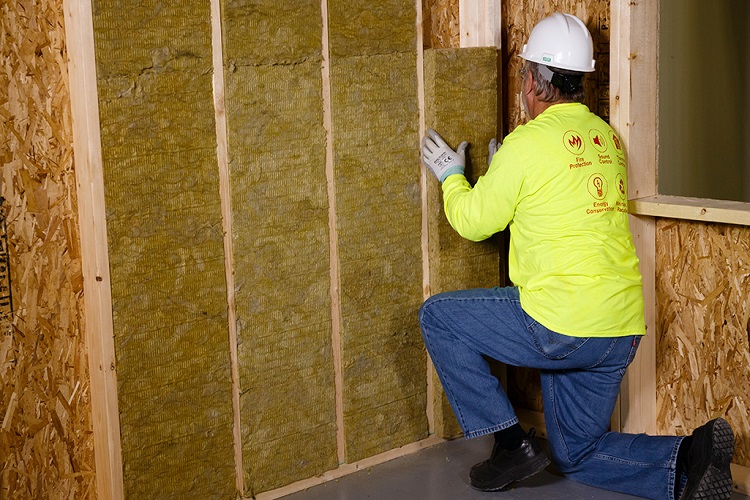Exploring the Types of Cavity Wall Insulation Materials

Cavity wall insulation stands as a vital component in enhancing the energy efficiency and comfort of buildings. One of the key decisions in cavity wall insulation is the choice of insulation material. Different materials offer varying levels of thermal performance, installation methods, and cost-effectiveness. In this article, we’ll delve into the various types of cavity wall insulation materials available, highlighting their characteristics, benefits, and considerations for choosing the right option.
Table of Contents
Mineral Wool Insulation:
Cavity wall insulation is frequently filled with mineral wool, which is typically composed of glass or rock fibers. It has superior fire resistance, thermal performance, and sound-isolating qualities. Mineral wool insulation can be used in both new construction and retrofit applications because it comes in batt or loose-fill form. To ensure long-term performance and durability, mineral wool is also non-combustible and resistant to moisture, bugs, and mold growth.
Benefits:
Excellent thermal performance
Fire resistance
Sound insulation properties
Resistant to moisture, pests, and mold
Considerations:
Higher initial cost compared to some other insulation materials
Requires professional installation for optimal performance
Foam Board Insulation:
Foam board insulation, also known as rigid foam insulation, consists of panels made from polystyrene, polyisocyanurate, or polyurethane. These panels are lightweight, easy to handle, and provide high levels of thermal resistance. Foam board insulation is ideal for cavity walls where space is limited, as it offers superior insulation properties in a thinner profile. It also provides excellent moisture resistance and can help improve the overall structural integrity of the building.
Benefits:
High thermal resistance
Thin profile, ideal for space-constrained applications
Excellent moisture resistance
Improves structural integrity
Considerations:
May require additional vapor barriers in some applications
More expensive than some other insulation materials
Expanded Polystyrene (EPS) Bead Insulation:
Expanded polystyrene (EPS) bead insulation consists of small beads of expanded polystyrene, which are injected into the cavity using specialized equipment. Once installed, the beads interlock to form a continuous insulation barrier. EPS bead insulation offers good thermal performance and is lightweight, easy to install, and cost-effective. It also provides excellent moisture resistance and does not settle over time, ensuring long-lasting insulation performance.
Benefits:
Good thermal performance
Lightweight and easy to install
Cost-effective
Excellent moisture resistance
Considerations:
May require professional installation for optimal results
Limited availability in some regions
Polyurethane Foam Insulation:
Polyurethane foam insulation is a versatile insulation material known for its high thermal resistance and excellent air sealing properties. It is applied as a liquid foam, which expands to fill the cavity completely, creating a seamless insulation barrier. Polyurethane foam insulation offers superior thermal performance and can help reduce air leakage, improving overall energy efficiency. However, professional installation is typically required due to the specialized equipment and techniques involved.
Benefits:
High thermal resistance
Excellent air sealing properties
Superior thermal performance
Reduces air leakage
Considerations:
Requires professional installation
Higher initial cost compared to some other insulation materials
In conclusion, choosing the right cavity wall insulation material is essential for achieving optimal thermal performance, energy efficiency, and comfort in buildings. Each type of insulation material has its own unique characteristics, benefits, and considerations, and the selection should be based on factors such as budget, space constraints, and performance requirements. By understanding the options available, homeowners and property owners can make informed decisions to ensure effective cavity wall insulation for their buildings. Contact Manchester Cavity Walls for more information.
Leave a reply
You must be logged in to post a comment.









